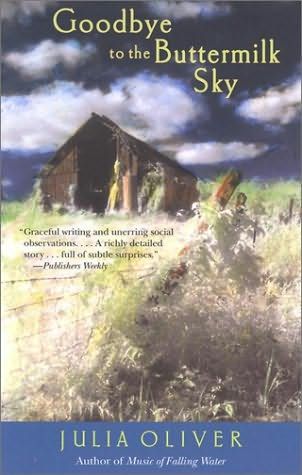After years of turning in terrific performances in front of the camera (Coal Miner's Daughter and Carrie come to mind), Oscar-winning actress Sissy Spacek is poised to release her first effort from the director's chair. 24 Frames reports that Spacek will helm Buttermilk Sky, a 1930s drama to be based upon Julia Oliver's short story collection Goodbye to the Buttermilk Sky. Per the report, Oliver's "supernaturally inflected" collection of 15 short stories "centers on various families and relationships in Depression-era Alabama." No production timetable is given, however, casting news regarding Buttermilk Sky is expected to follow in the next few days (Spacek is not expected to take on any roles).
For more info on the project, hit the jump to check out a brief overview of Oliver's collection. Spacek can be seen alongside Emma Stone, Bryce Dallas Howard, Viola Davis, and Jessica Chastain in the upcoming drama The Help. That film hits theaters this summer on August 12. [Update: 24 Frames has updated their story to report that the film has been retitled to "Sweet Tea" and that C. Gaby Mitchell (Blood Diamond) wrote the script.]
Here's a brief take on Goodbye to the Buttermilk Sky [from Amazon]:
Each of the 15 crisp stories wastes no time introducing characters and getting to the point, although Oliver sometimes allows her offbeat humor to sneak up on the reader, as in "Futures," a tale of two college students who visit a fortune teller only to discover, eventually, that the seeress mixed up their futures. In another sly story, a woman paying solitary "Last Respects" to her former husband is so intent on her memories that she doesn't realize until the end that she has been seated before the wrong casket--her ex, it turns out, having been cremated. In a different tone, "Penolia" depicts a woman using her "special power" to physically transform her daughter's appearance in order to discourage the child's father from abducting her. Despite the frequent supernatural overtones, these tales are essentially parables of modern life, often profiling people at a pivotal moment after the death of a spouse, divorce or some other milestone. They succeed both as entertainment and as commentary about personal and societal expectations in the age of the redefined family.


